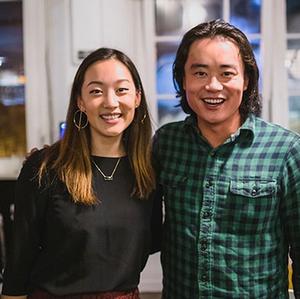![DSSG eScience 2018[1]](https://media.bizj.us/view/img/12186904/dssgescience20181*540xx4000-2250-0-29.jpg)
The University of Washington is launching a new effort through its eScience Institute called the Scientific Software Engineering Center (SSEC). The new center will address the growing demand for software engineers who can lend their talents to researchers.
The center is part of a larger network set to receive $40 million from Schmidt Futures, a philanthropic initiative founded by Wendy Schmidt and Eric Schmidt, the former CEO of Google. The network, called the Virtual Institute for Scientific Software, will initially operate for five years across four universities. The other participants are Johns Hopkins University, the University of Cambridge and the Georgia Institute of Technology.
Although the new UW center will support Schmidt Futures projects, some of the funding is allocated for university projects, said David Beck, the senior data science fellow at the UW eScience Institute. The SSEC currently has 14 data scientists but is looking to hire seven engineers, three more data scientists and a design engineer, Beck added.
"This is the challenge, finding a diverse pool of software engineers," Beck said. "The first job that we really need to fill is the center engineering lead. This is essentially the person who will be responsible for managing the software engineers, assigning projects, running scrums and that kind of stuff. We're really looking to hire that person right away."
The center is located in the Washington Research Foundation Data Science Studio on UW's Seattle campus.
Beck said the SSEC will benefit the university because there is a pent-up demand for engineers to help UW researchers on a variety of projects. An astronomer, for example, might want to do research that relies on engineering but lack the engineering skills to do it alone. Beck added the center will focus on data science applications and software.
Each university in the network will receive about $2 million per year over five years, Beck said, adding he hopes to have the center up and running in four months.
"Hiring is our strong limitation right now. We need the talent," Beck said. "To an extent some of this activity already happens, but it's our data scientists doing it and, again, they're data scientists and not software engineers. That's sort of what's motivating a lot of this is we know there's this pent-up demand, and we know there's this need. That's why I'm pushing so hard to move so quickly on this."








